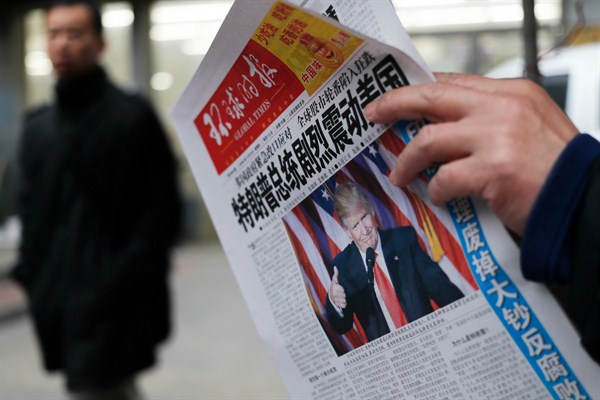European and Asian political analysts are reacting quite differently to Donald Trump’s victory in the U.S. presidential election. Many European public policy intellectuals are deeply worried about the new team in power in Washington and they see the election outcome as a sign of the decline of the liberal international order. Some distinguished Asian thought leaders, in contrast, see an opportunity to build a new order—one in which Asian powers will be more prominent in setting the rules. In any event, the consensus seems to be that the Trump win will result in the further redistribution of power to regional players.
Conversations with a range of Europeans who see themselves as part of the vital trans-Atlantic community that created the postwar order in the late 1940s show that the Trump victory has badly shaken their sense of security, both national and personal. They see the election outcome as accelerating the decline of the liberal international order, which could affect the world economy and the increasingly multicultural societies in which they live. They worry about Trump’s disdain for the postwar alliance system and fear that his approach to Russia creates grave risks to their national security.
At the same time, there is no sign that they see Europe as being able to generate new big ideas about the international system. For them, a less engaged America is a threat because they are not confident that any single European state can fill the vacuum. Germany is the most likely candidate, with a steady and sober leader and a natural dominant role in the regional economy. But the European project of the past half-century would mitigate against any one country, and Germany in particular, being assigned an outsized role. The European Union prefers collective leadership, with all its flaws and inefficiencies.

